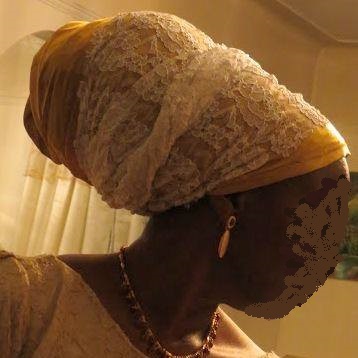
This is a photo from April, 2015, when I decided to start covering my head every day instead of just on the Sabbath. I did it in response to an ignorant statement from a woman at a diversity class that I had to attend. She stated that it was backwards for women from Muslim countries to cover, that they were oppressed. I find it significant that this class was meant to teach us how to get along with each other, but here was the teacher saying something divisive. I told her after class that some Christian women cover.
She didn’t know that I am included in that because that was during the week and my head was bare. So she thought it was OK to say something less than inclusive – like how people will look around before they tell a racist joke – assuming that if you are of the same color as them, you will agree.
I like that covering my hair makes people have to look at me as a person, and not as a body. It slows people down. They don’t assume that they can be intimate with me (and that word means more than physical). This society assumes a lot and takes a lot of liberties.
There is some spirituality in the practice of covering, and some religion. I can cite the Bible verses, but they aren’t the point. Nobody told me to do this. I’m not under anybody’s control – except God’s. I feel called by God to do this. It is a reminder to me that I am a precious child of God. It is a sign that I am focused more on the spiritual than the physical.
Muslim, Jewish, Hindu, and some denominations of Christian women do this as a sign of modesty. What I find most interesting is that I get more flak for doing this than when I shaved my head.
Also, I cover as part of my commitment to being sober. When I was stoned, nobody noticed or cared. Now that I am sober (in as many ways as possible), people get irked. That is very interesting to me.
On that day I wore a pin with Nefertiti. Notice her amazing headpiece. It is her crown, and therefore a symbol of her authority. I suspect she wore that around people who needed to be reminded that she was queen. I wear my head covering for a similar reason. To remind them that I am a child of God. It also is intended to remind them of their own divine inheritance.
One male friend said of this picture “I think it shows compliance to patriarchal will.” But I don’t think he gets a vote. As if women can’t choose to do what they want. If men were able to control themselves, women wouldn’t have to cover up. No woman is to blame for a man’s actions. But it is best not to dangle raw meat in front of dogs, either.
Nobody questioned me when I was stoned. That was when I wore baggy clothing and a barely there bra and boobs too big for that. That was when I wore tie-dyes that I made myself and pants hand sewn from batik fabric. Nobody minded that. I wore that when I was smoking pot every morning. They didn’t seem to care that I didn’t shower every day either.
Maybe because that was normal.
Maybe because I fit in with everybody else who was also lost and broken then.
I remember a time when I started wake up, started to take care of myself and started to write books and make art. I had a coworker who saw the smile on my face, the natural smile that results from noticing the tiny joys in this life instead of trying to run away from the pain. There is a joy from doing the hard internal work of growing up. She looked at my smile and said sort of sideways “What’s up?” Questioning me, curious, suspicious even.
There was nothing up.
I wasn’t up to anything but I certainly wasn’t down anymore.
Down was old.
This is a person who made fun of people who did drugs but had her own way of escaping. On her days off she would sleep the entire day away. Escape is escape no matter how you do it. Chemically or naturally not being present is still running away.
So now I have replaced my dependence on drugs with a dependence on God. My personal understanding of religion has come into question. I wear loose modest clothing and I cover my head. I’m not trying to call attention to myself but I am clothing myself with the armor of righteousness to remind myself of the One that I belong to. It is like putting on a name tag saying I work for this company. But the company I work for is God.
But now that I’m doing something religious, people question. They wonder why I cover my head, they wonder why I wear long clothing. They didn’t care when my hair wasn’t washed and my clothing was sloppy. But now that I’m taking care of myself they challenge me. Their questions aren’t out of respect. It isn’t curiosity.
They think perhaps that I am “other”. Perhaps they think I am judging them. I don’t know what’s up with them. I’ve asked why are you asking, but that only puts them even more on the defensive. But why should I be on the defensive for taking care of myself? And why should I have to justify myself for dressing in a religious manner?





You must be logged in to post a comment.